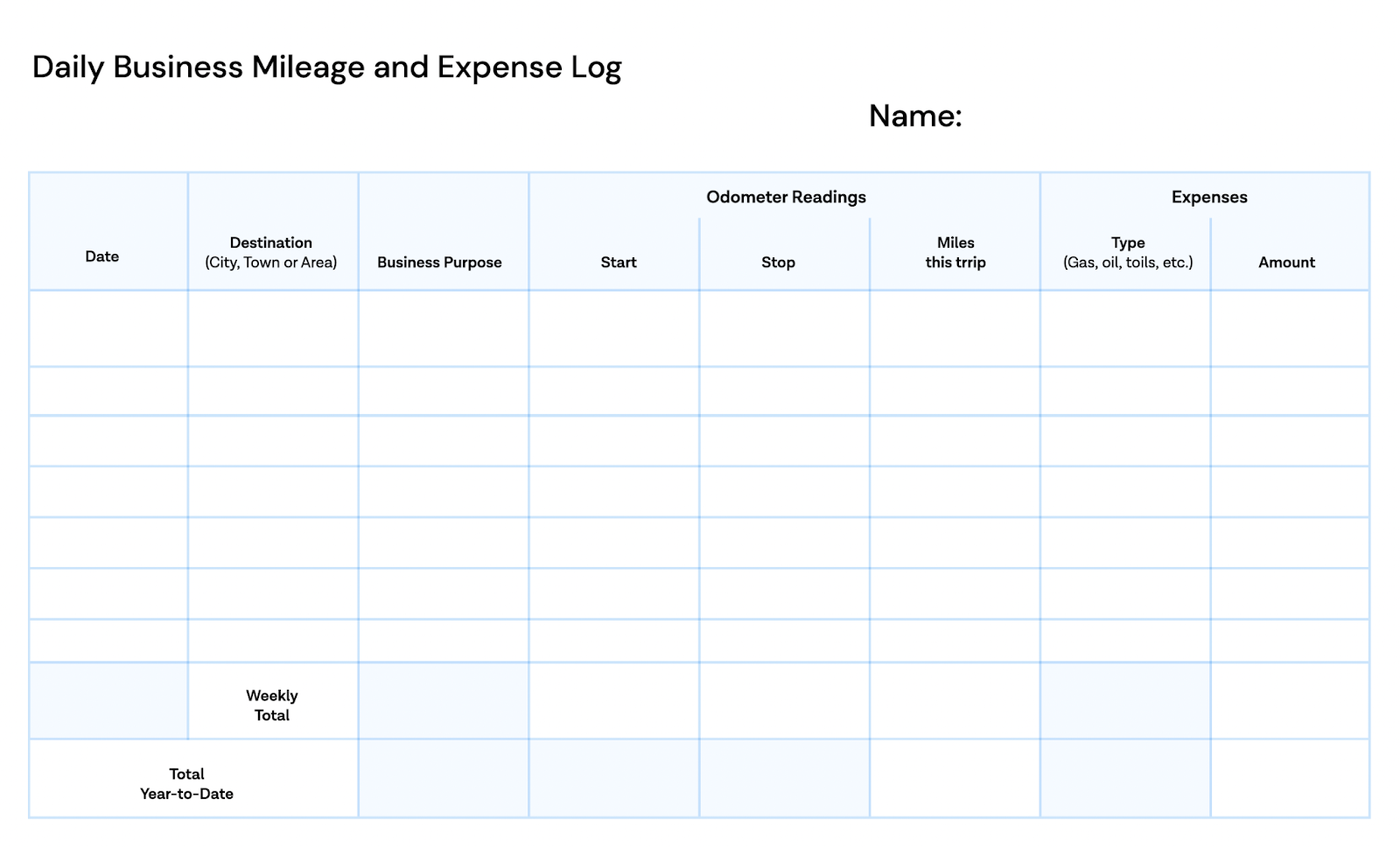Torben Robertson
7 mins
Mileage tracking apps reduce mileage error and exaggeration
Eliminating mileage error and exaggeration with outsourced mileage tracking apps reduces unnecessary costs and ensures IRS compliance.
Follow us on LinkedIn
Our PageWhat are mileage tracking apps?
Mileage tracking apps are great tools for reducing mileage exaggeration and error. GPS tracking captures accurate data that managers can oversee and approve. While mileage fraud is rare, it happens; errors, however, are common, and companies need intelligent systems to make sure that these errors are eliminated.
Fraudulent mileage claims
Are employees exaggerating mileage?
If you are running an IRS-compliant program without a mileage tracker, it is still unlikely that fraudulent mileage claims are pervasive. This is because of the requirement that employees record their starting and ending odometer readings before and after trips. If the odometer readings do not match the reported travel distances, HR can easily spot the discrepancy.
Moreover, at Cardata, we have worked with tens of thousands of sales reps, merchandisers, and all manner of employees who drive for work, and we have found that they all have one thing in common: they are honest people.
However, it is still technically possible to commit mileage fraud when an employee drives their personal car for work. A driver could, for example, drive their personal vehicle on the weekend, bringing the odometer up, and then report that drive as part of a business trip that they took on Monday. This is a rare occurrence, but it is possible, so HR leaders should be aware of it.
Without a GPS reading of where the vehicle traveled, it would be impossible to verify whether the mileage submission was accurate or exaggerated. With a GPS mileage app, conversely, it is impossible to include extraneous mileage in the official tally.
Is fraud or mileage recording error more common?
Far more common than mileage fraud are simple tallying errors. When you have to make multiple business trips every day, and record a host of information relevant to each trip manually in a paper mileage log, it is difficult to be entirely precise.
Moreover, a car’s odometer shows only miles—not fractions of a mile. A half mile extra is not much if overcounted once, but over tens of thousands of trips is a significant cost.
Luckily, mileage trackers take care of both problems, exaggeration and error. Drivers do not have to enter any information into a spreadsheet when they use a GPS mileage app: they simply turn the app on, drive, and get reimbursed.
What are the business risks of mileage exaggeration and error?
A business can be impacted in two ways. First of all, extra miles means extra cost to the business.
At Cardata, some of our clients have several thousand drivers. Through error or exaggeration, a thousand drivers might overreport 500 miles each per year (that would be only a 2-5% tallying error for many clients). If their employer were paying the IRS standard mileage rate of ¢62.5 per mile, that would cost the business an extra $312,500. Enterprises must beware the potentially enormous cost of imprecise mileage tracking.
Secondly, a business could be out of compliance with IRS regulations if they are not following the right rules for vehicle reimbursement programs. If employers or drivers are unable to produce the right documentation—for example, a database generated by a mileage app, or a paper mileage log—there could be unforeseen tax consequences for both parties.
If mileage is unaccountable, driving reimbursements could be treated as taxable car allowances, subject to payroll and income tax. This could lead to an increased tax burden of 30% for all mileage reimbursements that are not justifiable business expenses.
Mileage trackers prevent error and exaggeration
When employees track their business miles with a mileage tracking application, their records become more accurate. GPS apps can capture mileage with amazing precision: the best hardware and software can pinpoint locations within meters.
When your employees track their mileage with an app, they do not have to write any information about their business trip down: no more odometer readings, no more trip distance calculations. The opportunities to make a mistake are almost completely eliminated.
Not only does this protect your business from extra costs, it also makes sure employees are getting reimbursed fairly and accurately for every mile they drive. What I did not yet mention is that employees could just as easily underreport as overreport mileage by mistake. You want your employees to feel confident that they are getting reimbursed to the exact cent and mile. A mileage tracker guarantees that.
Software for HR oversight can help detect anomalies
Mileage trackers pair with admin portals like cheese and wine. An administrator portal is desktop or browser software that lets administrators see the mileage their team is reporting through the app. Trips are visible to HR, but they do not need to be approved for reimbursement. This means that HR can take a look at trips if they think something is awry, but they are not burdened with the lengthy task of approving all mileage.
Privacy: will employees find mileage tracking invasive?
Employees actually benefit significantly from using a mileage tracker. As I mentioned, with a mileage tracker there is very little chance of any mileage being missed, so drivers get reimbursed for every mile.
Yet an even greater benefit is that they do not have to waste time on manual mileage logs. Mileage logs are frustrating and time-consuming. For every business drive an employee makes, they have to record all of the following information:

Yes, you are reading that right. For every trip a driver must record the date, the destination, the business purpose, the starting odometer reading, and the ending odometer reading of the trip, the total trip miles, any ancillary expenses; then they have to make weekly totals and year-to-date totals. That is a huge time commitment. Mileage trackers give drivers their time back. Everything needed to justify mileage in accordance with your company driving policy, or even to the IRS, is captured and stored by a mileage capture application.
Further reading: Save drivers a week of work per year with a mileage tracker.
What are the features to look for in mileage trackers?
1. Precise tracking
Look for an app that has accurate tracking, first of all. An app will not be perfect 100% of the time, but you want something you can rely on for the vast majority of trips.
2. Customer support
Because even with the best software there are occasionally errors in GPS mileage capture, make sure the app you get is backed by a strong customer support team. Enterprise HR leaders need experts who they can call when it is time to troubleshoot.
3. Administrator portal
Make sure the app is paired with an administrator portal that program managers can use to oversee mileage. You want one that allows you, but does not require you, to oversee and approve all company mileage. This software will also include many other features relating to establishing and managing your whole vehicle reimbursement program.
4. Tracking only during selected hours
Check if employees can set their work schedule in the app, so that trips outside of their normal work hours are not captured by the tracker.
5. Reclassify business trips as personal and vice versa
Lastly, check for a feature that lets drivers classify their trips as business or personal. Employees naturally make personal trips during their workday—a drive to lunch or to a doctor appointment; ensure that they can go back and reclassify a trip that was accidentally counted as ‘business’ as ‘personal.’
To learn more about how to differentiate business and personal trip, read this:
HR leaders: differentiating personal and business mileage.
Conclusion
While mileage fraud is rare, it can happen, and filling out manual mileage logs is an error-prone process. For enterprises, even a 2% overreport of total mileage can cost the business tens, even hundreds of thousands of dollars.
HR leaders can reduce mileage error and exaggeration by recommending a mileage app to track their employees’ business mileage. Using software takes the guesswork out, sets clear expectations for employees, and dramatically reduces the time burden of vehicle program management for HR and program administration.
Read more about the benefits vehicle reimbursement programs bring to HR:
HR leaders: does your team treat car allowances as extra income?
Thinking of outsourcing your car allowance program? 4 things to consider before you do.
Is your HR department ready to reimburse to the exact cent and mile? Then visit our main website to read about Cardata’s mileage app:
Share on:


